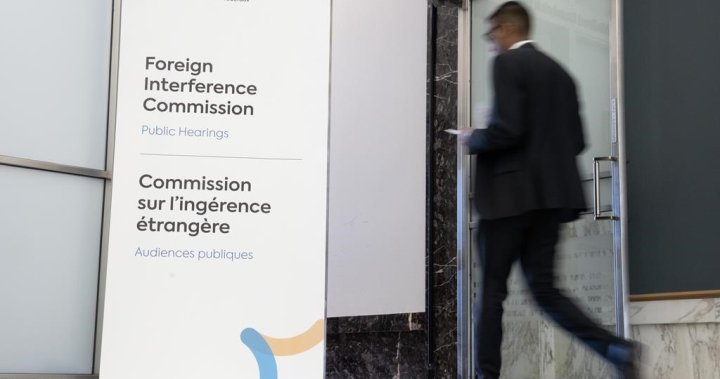A coalition of diaspora groups in Canada has submitted a closing statement to the foreign interference inquiry, claiming that the level of foreign interference in the past two federal elections may have been more significant than the government has acknowledged. The groups argued that while the interference may not have affected the nationwide results, it could have potentially swayed results at the electoral district level. They also pointed out flaws in the system for reporting complaints about interference, which may have resulted in underreporting of incidents.
The coalition represented eight advocacy groups representing Chinese and other diasporas in Canada, who stated that they often bear the brunt of foreign interference activities. Despite the government’s insistence that interference did not impact election results in the Liberals’ favor, the coalition argued that existing complaints mechanisms are inaccessible to many diaspora community members due to language barriers and confidentiality concerns. They believe that the government did not have the full picture of the extent of foreign interference in the elections.
The Liberal government introduced measures ahead of the 2019 election to protect Canadian elections from foreign interference operations. This included a panel of senior public servants called SITE that received briefings from intelligence agencies and was tasked with notifying the public if covert operations threatened election integrity. However, the panel did not believe that interference operations met that threshold in either the 2019 or 2021 elections. The Conservatives disagreed with the government’s position, stating that multiple riding election outcomes were negatively affected by interference.
The Office of the Commission of Canada Elections received a total of 201 complaints about potential foreign interference in the 2019 general election, with the majority of complaints related to American individuals or entities. The office noted that most of the complaints were concerning statements or comments made by foreigners about the Canadian election or candidates, which are exempted under the Canada Elections Act. There were only 22 complaints related to the 2021 election, and the office launched six investigations into complaints about interference over both contests.
The OCCE also mentioned confusion about which departments provided pertinent documents or information in relation to foreign interference. Despite media reports about alleged interference in both the 43rd and 44th general elections, the OCCE initiated three reviews on related matters. Overall, the coalition of diaspora groups argued that the full extent of foreign interference in the past two federal elections may not have been accurately reflected by government assessments, and Commissioner Hogue should consider the possibility that interference impacted the elections at the electoral district level.
In conclusion, the involvement of foreign interference in Canadian elections remains a contentious issue, with various groups presenting differing perspectives on the extent of interference and its impact on election outcomes. The coalition of diaspora groups highlighted challenges in reporting interference and advocated for a more thorough examination of the issue by Commissioner Hogue. Despite government assertions that the elections were free and fair, concerns about the influence of foreign entities on the electoral process persist, raising questions about the overall integrity of the democratic process in Canada.


